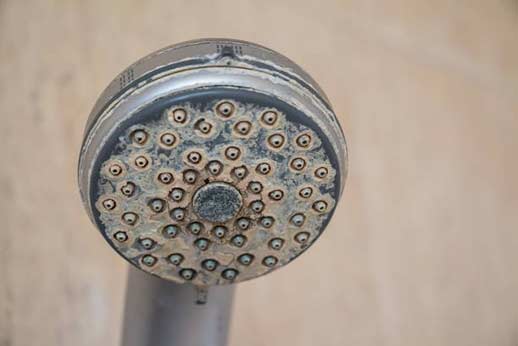
Hard water is a common issue that many households face. It occurs when water contains high levels of minerals, such as calcium and magnesium. While hard water is generally safe to consume, it can have several negative impacts on both your health and household. Here we will get into into the effects of hard water and explore potential solutions to mitigate its impact.
Understanding Hard Water
Before we delve into the impact of hard water, let’s first understand what it is. Hard water is characterized by its high mineral content, primarily consisting of calcium and magnesium. These minerals are picked up as water passes through limestone and chalk deposits in the ground.
When water is considered hard, it can leave behind mineral deposits, commonly known as limescale, on surfaces it comes in contact with. This can lead to a range of issues in your household.
The Impact on Your Health
While hard water is generally safe to drink, it can have some negative effects on your health. Here are a few ways hard water may impact you:
Dry Skin and Hair
Hard water can strip away natural oils from your skin and hair, leaving them feeling dry and dull. This can cause discomfort and may lead to skin irritation or exacerbate existing skin conditions, such as eczema.
Increased Sensitivity to Soaps and Detergents
The minerals present in hard water can react with soaps and detergents, reducing their effectiveness. This means you may need to use more products to achieve the desired results. Additionally, the residue left behind by hard water can contribute to skin irritation and make it difficult to achieve a lather.
Clogged Pores
When hard water is used for bathing or washing your face, the minerals can accumulate on your skin and clog your pores. This can lead to breakouts, acne, and other skin issues.
Potential Impact on Digestion
Some studies suggest that consuming high levels of minerals found in hard water may have a slight impact on digestion. However, more research is needed in this area to draw definitive conclusions.

The Impact on Your Household
Hard water not only affects your health but also has several implications for your household. Let’s take a look at some common issues caused by hard water:
Limescale Buildup
One of the most visible impacts of hard water is the buildup of limescale on faucets, showerheads, and other plumbing fixtures. Over time, limescale can restrict water flow, decrease appliance efficiency, and even cause clogs in drains which need cleaning.
Stained and Dull-Looking Laundry
When washing clothes in hard water, minerals can bind with detergents and leave behind residue. This can lead to laundry that appears dull, stiff, or discolored. The minerals may also cause the fabric to wear out more quickly.
Decreased Lifespan of Water-Using Appliances
Appliances such as dishwashers, washing machines, and coffee makers that come into contact with hard water may experience a shorter lifespan. The mineral buildup can damage internal components and reduce the overall efficiency of these appliances.
Streaky and Spotty Glassware and Dishes
Hard water can leave behind unsightly spots and streaks on glassware, dishes, and silverware, even after they have been washed. This can make your table settings appear dirty or unappealing.
Solutions to Mitigate the Impact of Hard Water
Now that we understand the effects of hard water, let’s explore some solutions to help mitigate its impact:
Water Softeners
Water softeners are devices that remove the minerals responsible for water hardness, such as calcium and magnesium. These systems can be installed at the point of entry to your home or at specific points, such as under the sink. Water softeners replace the minerals with sodium or potassium ions through a process called ion exchange.
Descalers
Descalers are an alternative to water softeners and work by altering the structure of the minerals in hard water, preventing them from causing limescale buildup. Descalers use various technologies, such as magnetic fields or electrical impulses, to address the issue of hard water.
Water Conditioners
Water conditioners, similar to water softeners, help reduce the effects of hard water. However, instead of removing the minerals, they change their behavior, making them less likely to cause limescale buildup. These systems are known to be eco-friendly and require minimal maintenance.
Using Vinegar or Lemon Juice
For minor limescale buildups, natural household products like vinegar or lemon juice can be effective at breaking down the minerals. Simply apply the vinegar or lemon juice onto the affected surface, let it sit for a few minutes, and then scrub away the limescale with a cloth or sponge.
Taking Everything into Account
Hard water can have a significant impact on both your health and household. From dry skin and hair to limescale buildup and decreased appliance efficiency, the effects of hard water can be wide-ranging. Fortunately, there are several solutions available to help mitigate these issues and ensure a healthier and more efficient living environment. Consider the options mentioned in this article and choose the one that best suits your needs. By addressing the issue of hard water, you can improve your overall well-being and extend the lifespan of your household appliances.

